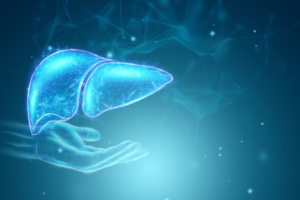Alcoholic liver disease (ALD) is a serious condition resulting from excessive alcohol consumption, affecting millions worldwide, and particularly concerning in urban India.
Overview of Alcoholic Liver Disease
Alcoholic liver disease is growing as a major health concern. It affects the liver’s ability to perform vital functions. The liver handles detoxification in the body; keeping it healthy is crucial for overall well-being. People living in urban India are increasingly at risk due to changing lifestyles and rising alcohol consumption.
This blog will explain what ALD is, discuss its stages, symptoms, and various treatment options. Understanding these aspects can aid in making healthier choices and spreading awareness, helping both individuals and families.
The Basics of Alcoholic Liver Disease
Alcoholic liver disease progresses through three stages:
- Steatosis (fatty liver): This is the first stage, causing fat buildup in liver cells.
- Alcoholic Hepatitis: Inflammation of the liver, often resulting from prolonged alcohol consumption.
- Cirrhosis: This stage refers to permanent scarring of the liver, severely affecting its function.
Key factors contributing to ALD include alcohol consumption patterns and genetic predisposition. Certain demographics, such as those living in urban areas of India and people with family histories of liver disease, are most at risk.
Recognizing Early Symptoms and Detection Methods
Identifying early symptoms of alcoholic liver disease is essential for effective intervention. Common signs include:
- Fatigue: Feeling tired more often than usual.
- Jaundice: Noticeable yellowing of the skin and eyes.
- Abdominal Pain: Discomfort in the liver area.
Early detection increases the chances of managing ALD effectively. Diagnostic tools in India, such as liver function tests and imaging, can aid in timely diagnosis and intervention.
Comprehensive Treatment Options
Treating alcoholic liver disease involves several strategies:
- Medical Treatments: Accessible across India, various medical treatments, such as medications and therapies, help manage the disease effectively.
- Lifestyle Modifications: Stopping alcohol consumption is crucial; dietary changes, focusing on healthier foods, support liver health.
- Physical Activity and Mental Health: Regular exercise and maintaining a positive mental outlook are vital for treatment success.
Advancements in research, particularly in the Indian context, are continually improving treatment options and outcomes.
Empowering Families and Reducing Stigma
Reducing alcohol intake and improving community health are crucial steps in combating alcoholic liver disease:
- Open Conversations: Addressing the stigma around ALD can help individuals and families feel less isolated.
- Family Support: Providing resources for families dealing with addiction fosters a supportive environment.
Empowering support networks for individuals affected by ALD is key to providing hope and encouragement.
Conclusion: Call to Action for Healthier Lifestyles
Awareness and understanding of alcoholic liver disease can inspire better lifestyle choices. Taking proactive steps for liver health, such as reducing alcohol consumption and seeking medical support, is crucial. Let’s spread awareness and encourage healthy changes.

